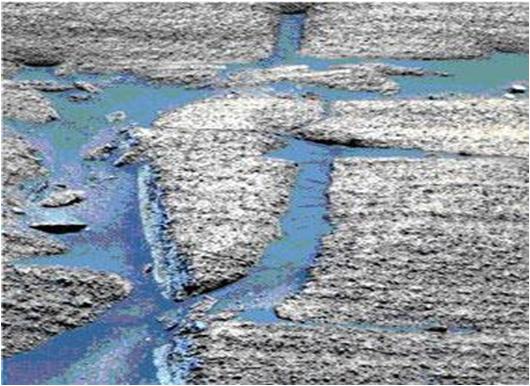Mars May Have Water under Its Surface

Water covers almost two thirds of the surface area of our planet Earth. Moreover, a large amount of water is stored beneath the surface of the earth in the form of underground reservoirs and aquifers. Many people all over the world access these underground sources of water by using wells. Earth is the only planet known to have large amounts of underground water, however, scientists now claim that Mars also possesses large amounts of underground water.
Researchers analyzed a couple of Martian meteorites and discovered that the Martian mantle contains amounts of water that are significantly higher than previously estimated. In fact, according to the claim of the scientists, the amount of water contained in the Martian mantle is similar to that contained within Earth. The meteorites that were analyzed by the scientists are called shergottite meteorites. Shergottitle meteorites are basically relatively younger meteorites that came into existence due to a partial melting of the Martian mantle and were crystallized on the planet’s surface and subsurface.
The meteorites came to Earth after they exited Mars’ orbit about two and a half million years ago. The scientists placed special emphasis on analyzing the amount of water content present in the minerals contained inside the meteorites and found that the Martian mantle could possibly contain about 70 to 300 ppm of water which is very similar to the amount contained in Earth, whose upper mantle contains between 50 to 300 ppm of water. Hence, the scientists concluded that both planets hold similar amounts of underground water.
Researcher Erik Hauri gave the following comments when asked about this new research. “There has been substantial evidence for the presence of liquid water at the Martian surface for some time so it’s been puzzling why previous estimates for the planet’s interior have been so dry. This new research makes sense and suggests that volcanoes may have been the primary vehicle for getting water to the surface.”
Researcher Francis McCubbin summed it up by saying, “Not only does this study explain how Mars got its water, it provides a mechanism for hydrogen storage in all the terrestrial planets at the time of their formation.”







